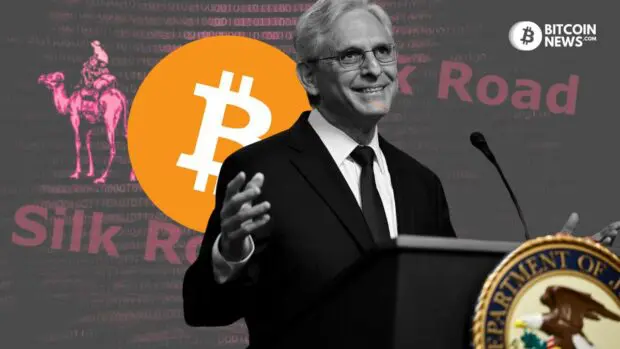In a significant legal development, a U.S. appeals court has completed the formal process of confiscating 69,370 bitcoin and other digital assets from the now-defunct dark web Silk Road marketplace.
According to a filing on December 20, the U.S. District Court of Appeals for the Ninth Circuit affirmed the transfer of these digital assets to federal control, solidifying the government’s claim over the illicitly obtained funds.
The latest court decision follows a prior ruling that validated the government’s assertion of ownership over the digital assets linked to Silk Road‘s illegal operations. The confiscated digital asset includes not only bitcoin but also Bitcoin Gold (BTG), Bitcoin SV (BSV), and Bitcoin Cash (BCH).
The Notorious Silk Road Marketplace
The notorious Silk Road, operated by Ross Ulbricht from 2011 to 2013, gained infamy for facilitating the sale of drugs and weapons. Following Ulbricht’s arrest in late 2013, the FBI shuttered the platform.
Despite being sentenced to life in prison, Ulbricht made headlines in 2022 by agreeing to use $3 billion worth of stolen bitcoin to settle his case with the U.S. government. Additionally, he waived his claim to 69,470 Bitcoin, further entangling the legal complexities surrounding Silk Road’s dark legacy.
Notably, the court passed the initial judgment on Silk Road’s bitcoin holdings in August this year. This decision came after the United States Justice Department’s 2020 seizure and subsequent motion for the formal forfeiture of the digital asset, which, at the time, surpassed a staggering $1 billion in value.
The initial complaint outlined that the U.S. government took possession of the digital asset, surrendered by an individual called “Individual X,” who had hacked into Silk Road and assumed control of its funds. It stated:
“On November 3, 2020, Individual X signed a Consent and Agreement to Forfeiture with the U.S. Attorney’s Office, Northern District of California. In that agreement, Individual X, consented to the forfeiture of the Defendant Property to the United States government.”
Numerous reports identified them as now-32-year-old man James Zhong, who was sentenced to a year in federal prison in April this year.
The Movements in DoJ’s Digital Asset Wallet
It is interesting to note that on July 12, a digital currency wallet linked to the United States Department of Justice (DOJ) executed several transactions associated with Silk Road. The wallet marked the movement of around 9,825.25 bitcoin valued at approximately $299 million. Analysts closely monitored these fund movements, with market participants speculating on the potential impact of any substantial government sale on bitcoin’s price.
This recent court decision not only marks the culmination of a prolonged legal battle but also raises questions about the potential impact on the market, as government-controlled assets find their way into circulation. The Silk Road saga continues to serve as a cautionary tale and a point of intrigue within the broader narrative of digital asset’s evolving legal landscape.










